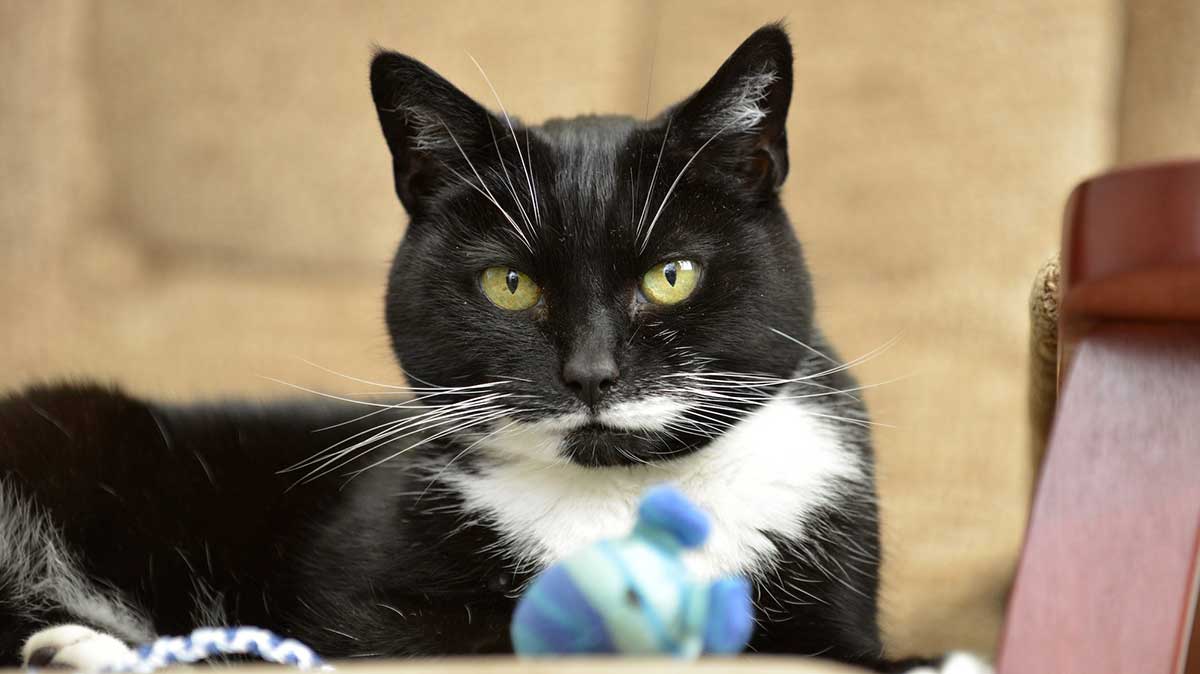
Common cat poisons and toxins
There’s a reason why cats are known for their curiosity and it can sometimes get them into trouble. While they are more careful eaters than dogs, they can be poisoned by licking things off their paws or coat, and common things around the house can be toxic. Here are the top cat poisons to look out for…
Has my cat been poisoned?
Common signs to look out for include:
- Staggering, shaking or other odd behaviour
- Red, raw, swollen or blistering skin, mouth, throat or paws
- Vomiting
- Dribbling
- Collapsing
- Difficulty breathing
Painkillers
The way a cat’s body works is very different to humans, so you shouldn’t ever give your cat any drugs meant for people. Painkillers are particularly dangerous, especially paracetamol and ibuprofen. Although vets do sometimes prescribe human medicines for cats, the dosage is very complex so don’t try it at home.
Mice and rat poison
Rodenticides can be toxic for your cat, either by coming into contact with the poison directly or by eating a mouse that has been poisoned. If you have a pet, it’s much safer to find another way to get rid of your unwanted house guests.
Flea or tick products
Spot-ons, flea collars, powders and shampoos are a common cause of poisoning in cats. This is usually down to using a treatment that was meant for dogs, giving them the wrong dose or using two types of treatment together. It’s always better to buy your products from a vet but, if you do get a shop-bought product, make sure you follow the directions very carefully.
Lilies
Even a dusting of pollen on a cat’s coat is enough to cause a reaction to many types of lily, including Easter, tiger and oriental lilies. Cat owners should avoid having lilies in the house. While most cats tend to ignore plants, kittens and indoor cats are more prone to chewing them so, if you have an indoor cat, you might want to consider avoiding houseplants all together.
Antifreeze
If you use antifreeze make sure your cat is out of the way and store it safely and securely away from prying paws. Don’t forget to mop up any pools of spilled antifreeze so your cat won’t come into contact with it.
Paint remover
Keep your cat out of the room when you’re using products like white spirit and turpentine and, if your cat does get paint on their fur, don’t try to take it off yourself – that’s a job for the vet!
Slug pellets
If you want to get rid of slugs, it’s best to either use a non-toxic form of slug control or cover treated areas with chicken wire so your cat can’t get to them.
Coal/tar-based products
This includes things like creosote and disinfectants that turn cloudy when mixed with water. Most diluted cleaning products are fine if the directions on the label are followed properly, but keep them out of the way to be on the safe side and contact your vet if your cat drinks a significant amount.
Onions
Onions contain a substance that can be toxic for cats and, even when it’s just used as flavouring in food, it can cause problems. Either way, onion or no onion, giving your cat scraps from the dinner table seems like a nice treat but they might not thank you later when they’re suffering from a poorly stomach. If you want to use treats, for example during training, stick to ones made especially for cats and remember that most treats are high in calories and fat.
Has my cat been poisoned?
Common signs to look out for include:
- Staggering, shaking or other odd behaviour
- Red, raw, swollen or blistering skin, mouth, throat or paws
- Vomiting
- Dribbling
- Collapsing
- Difficulty breathing
It’s possible that your cat may also have been poisoned if they go off their food for a day or more so it’s worth calling your vet for advice.
Some illnesses, like kidney disease or severe gastroenteritis, can look like poisoning and both of these can have a sudden start. If in doubt, call the vet.
What should I do if I think my cat's been poisoned?
Most household products in small quantities aren’t that toxic but if your cat eats or comes into contact with anything unusual you should call your vet immediately. See if you can identify the culprit and have any packaging to hand so you can tell the vet exactly what the substance is. If you’ve seen your cat chewing something, take samples along to the vet and make a note of the time they ate it and any symptoms they’ve had. It’s best to wrap your cat in a towel or use a Buster collar if you have one so they can’t lick themselves in case the poison is on their fur.
Don’t try to make your cat sick without asking the vet and never given them medicines designed for humans. If your cat is staggering or having a fit, clear obstacles out of the way and make the room dark and quiet.




